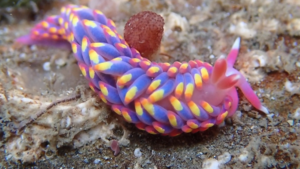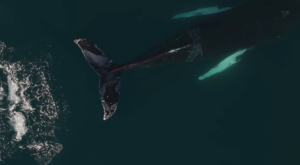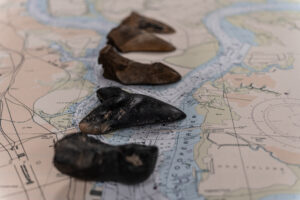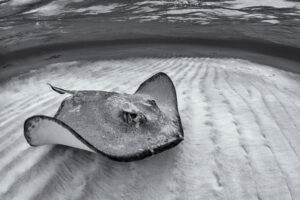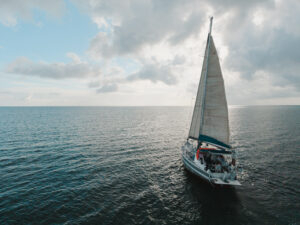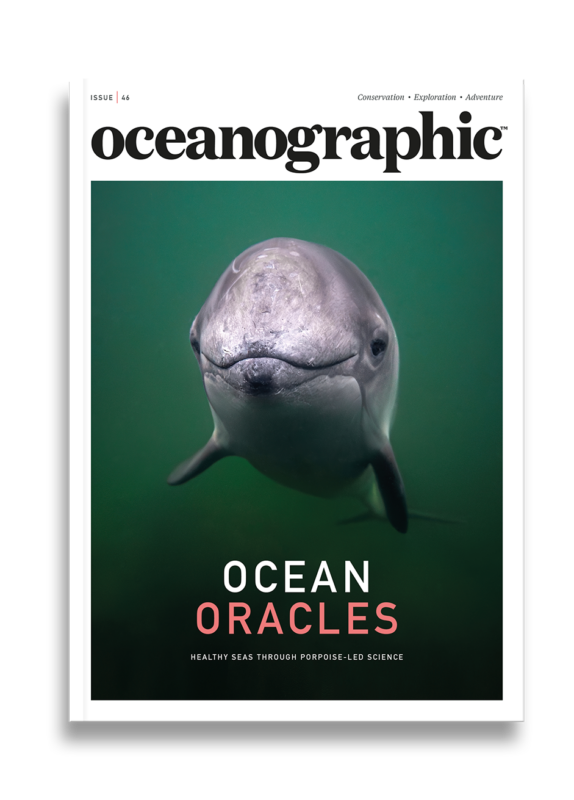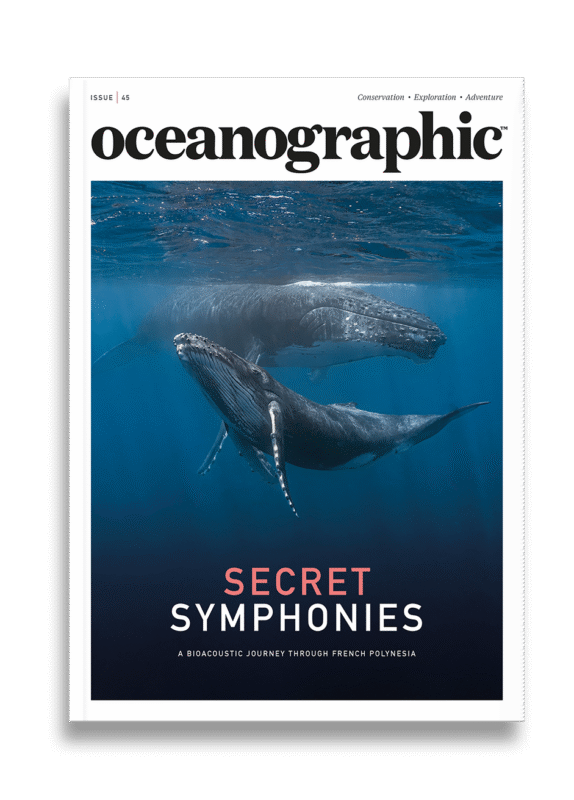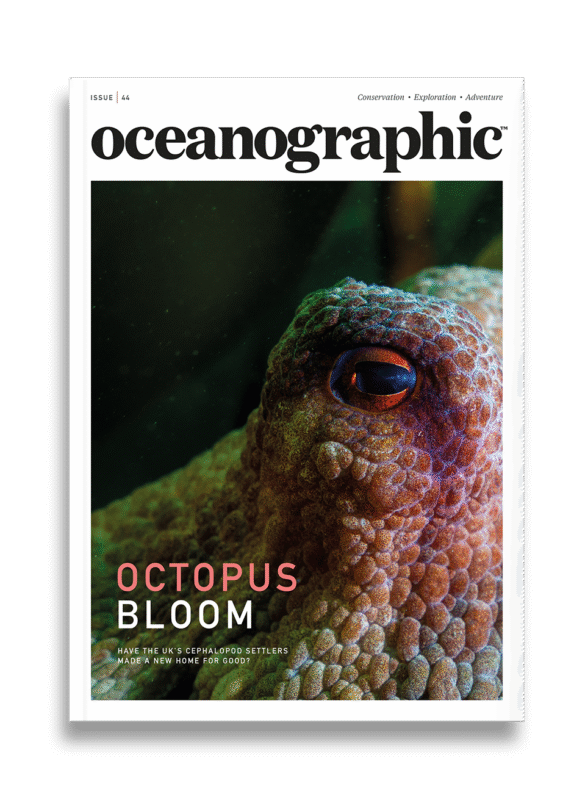Gender inclusion
To celebrate the upcoming International Women’s Day on 8 March, Steve Trent, CEO of the Environmental Justice Foundation (EJF), writes about gender inclusion in Liberia’s small-scale fisheries. The Foundation has conducted extensive work in Liberia's coastal communities including setting up women-run saving associations across 18 fishing communities. These have increased the financial independence of women playing a crucial role in small-scale fisheries and leading the post-harvest activities.
Mary is a Liberian fishmonger and processor, supporting a family of 12. In August 2022, Mary’s husband’s canoe capsized and was destroyed – and with it, their family’s main source of income. However, because Mary had joined a women’s community-run savings association called a ‘Village Savings and Loans Association’ (VSLA) in 2021, she was able to use her savings to reduce the impact of the accident on her family, treat the injured fishers and buy a new boat.
Her family now has a new canoe, and she is able to save every week with her VSLA group. This is one of 29 VSLA groups which have trained 890 fishmongers across Liberia, all but one of them women. These have been set up by the EU-funded Communities for Fisheries project implemented by the Environmental Justice Foundation (EJF), an NGO which works internationally to drive systemic, durable reforms to protect the environment and defend human rights. These associations were set up to help address gender imbalances in the coastal communities in Liberia and increase women’s participation in managing the fisheries they rely on.
The saving associations are crucial because the women live in poorly connected rural communities in Liberia, where most banks or credit facilities don’t establish branches. This, combined with the fact that many women have a lack of knowledge about personal finances, leaves many without the confidence to apply for loans. When these companies are present, many collect debts weekly and come to the borrowers’ houses to do so. This leaves others in the community aware of who is borrowing money and sometimes creates an atmosphere of shame around requiring loans. By joining the saving associations, Liberian women working in small-scale fisheries can improve their understanding of finances and access loans as part of a supportive community.
Women in Liberia’s coastal communities often face significant discrimination. Despite making up 60% of the fisheries workforce in Liberia, women are all too often left out of decision-making processes and excluded from leadership positions. Men decide on fish prices at landing sites and the fishing seasons, alongside other key decisions. Male participants in EJF’s report admitted that women are largely not present during the meetings where these decisions are made.



There are now VSLAs in 24 fishing communities in Liberia, spreading across four coastal counties. As they have to worry less about their personal finances, we have discovered increased community advocacy amongst women in these communities which, in turn, has also improved their decision-making powers and financial independence.
Despite the increase of women in decision-making positions, they still face numerous challenges linked to prescribed gender roles. According to our latest investigation, unlike the men who often take time to rest after a fishing expedition, women are expected to frequently multitask between their paid work and unpaid domestic labour, leaving them with less leisure time and, crucially, less time to participate in important fisheries meetings.
The VSLAs were introduced across the four counties through awareness-raising and education by EJF’s Community Mobilisers and Senior Technical Officer for Gender and Community Participation. Following training by the Mobilisers which included leadership and communication skills, they worked with each group to develop by-laws and host elections for each Association’s leaders. Cephas Asare, West Africa Regional Manager, said: “The introduction of these savings associations has been transformative for women across these communities, but the VSLAs have only been able to succeed because of the collaboration and capabilities of the participants.”


The VSLAs’ activities across the board are shaped by the fishing seasons; EJF research shows that between November and April, which is the active fishing season, VSLA members increased their supplementary livelihood activities and often used this to pay for their children’s school tuition. During the quieter season, members often borrowed higher amounts to engage in farming activities, renovate their fish smoking sheds to improve the price they can command on the market, or buy canoes and fishing gear in preparation for the active fishing season.
The strengths of women using these savings associations are myriad but interviewees in particular pointed out the benefits of the privacy VSLAs afforded them. One woman told EJF: “First, everyone used to see me as a beggar because I used to [use] credit from here and there. Now, I have my one place to credit from and only my VSLA members know about it.”
Some of the VSLAs have certainly come across challenges since their inception in 2021. This includes several of them experiencing inadequate saving trends because of initial mistrust between members, poor loan repayment, increased numbers of VSLA members impacting the functioning of the Associations and poor meeting attendance.
However, for those participating in the VSLAs, it has also increased their access to finance and saving capabilities, resulting in $305,599.19 being saved across the VSLAs between 2021 and 2023. Kula Shariff, head of the fishmongers in Kru town, who has used her savings to pay for her children’s education, says that over 100 women in Robertsport have approached her to ask the government and international partners to establish more VSLAs in Liberia.


“I helped the group using the training EJF gave us. I taught them bit by bit how to put [organise] their shares and social funds, and they are now understanding the process more,” Kula told EJF. Their popularity is entirely based on how effective VSLAs have been – reinforced by the fact that they have been adopted across countries including Niger, where they were piloted by CARE International in 1991. Women interviewed by EJF revealed that they have improved their financial management skills and improved their businesses, with 40.2% of loans taken by women during the first cycle of the VSLAs used to invest in fishing-related business. One woman told EJF, “I am no longer depending on a man before I sell. No man can bluff me again.”
EJF has also helped with the establishment of Collaborative Management Associations (CMAs) in Liberia which are responsible for the management of small-scale fisheries on the community level. Instead of small-scale fisheries management being entirely controlled by the government, these groups partner and work with the government to manage fisheries and consequently have increased control over shaping their own livelihoods. There have been many positive outcomes from the use of CMAs, with the formation of Grand Cape Mount County CMA, for example, contributing towards resolving conflict between different local communities which have now committed to working together and managing their shared fishing grounds.
These have also helped with the improvement of gender equality in Liberia’s coastal communities, resulting in a 50% increase of women in leadership positions, according to a survey by EJF. The ability of women living in Liberian coastal communities to take on these leadership positions in CMAs is directly facilitated by the financial independence resulting from the VSLAs.



Mary, who financially supported her family when her husband’s canoe capsized, was Vice President of the CMA in Margibi County. She told EJF, “Were it not for the VSLA, I would not have run for the CMA leadership. VSLA gave me the zeal, and also, my women, they encouraged me. They said, go, we will be behind you, and I thank God my campaign was successful and brought me this far.”
There is still a long way to go. It is estimated by USAID that 32% of Liberians experience food insecurity and 89% of Liberians living in the Southeast (Grand Kru region) are living in absolute poverty, according to the International Monetary Fund. The hard work of women in VSLAs and CMAs is starting to turn the tide; wherever you travel across these coastal communities, it is clear that women are ready to lead the way when it comes to increasing the financial viability and long-term sustainability of small-scale fisheries in Liberia. It’s now up to the Liberian government and relevant international organisations to support them in doing so.
Printed editions
Current issue
Back issues
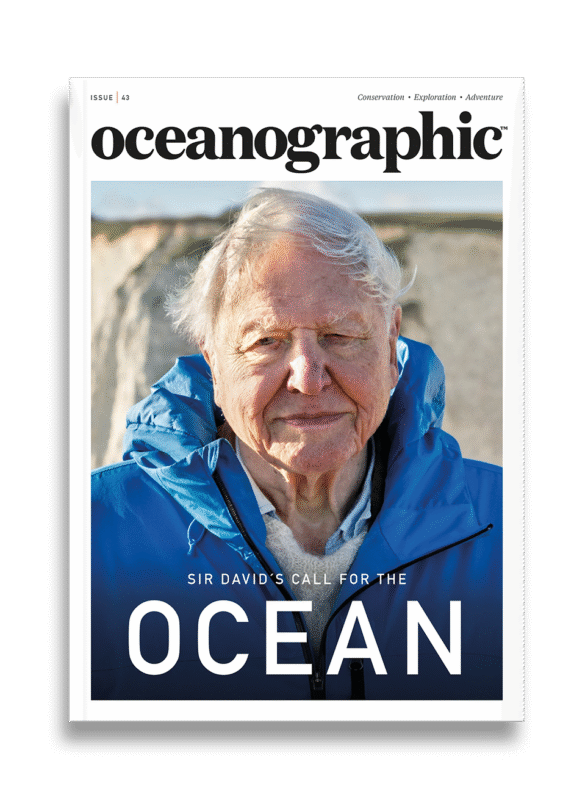
Back Issues
Issue 43 Sir David Attenborough’s ‘Ocean’
Enjoy so much more from Oceanographic Magazine by becoming a subscriber.
A range of subscription options are available.
